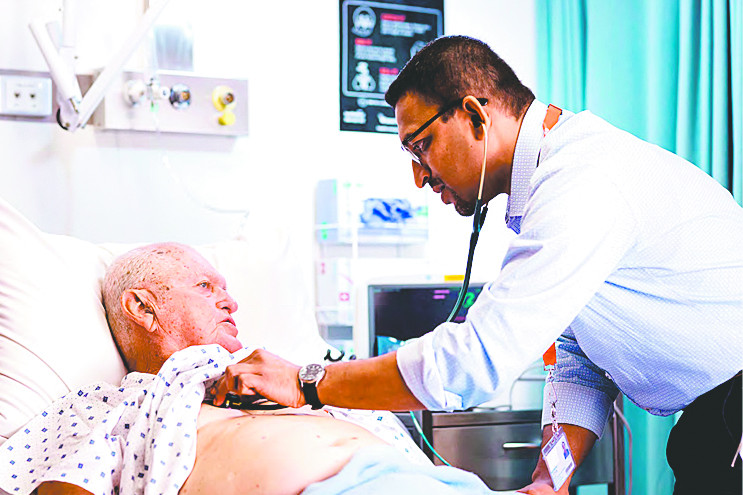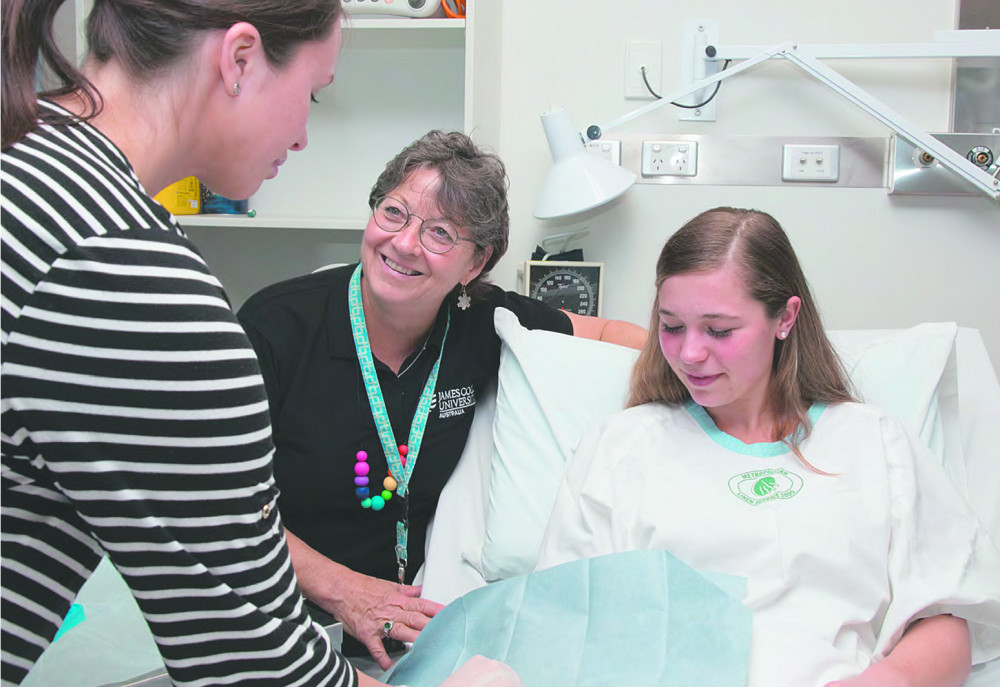General News
20 August, 2021
80 extra medical places needed by JCU
JAMES Cook University will step up its push for the federal government to fund more medical places at its campuses and in postgraduate settings, to help address the shortage of doctors in rural and regional areas.

JAMES Cook University will step up its push for the federal government to fund more medical places at its campuses and in postgraduate settings, to help address the shortage of doctors in rural and regional areas.
The recent COVID lockdown in Cairns and the closure of international borders has exposed the need for more GPs and other medical professionals in the far north.
JCU’s Dean of Medicine and Dentistry, Professor Sarah Larkins, says the university has a good track record of being able to produce doctors and other qualified medical personnel who want to stay in the region.
“We’ve got this very successful pipeline, we’ve got 241 graduates that are now working in the Cairns, Tablelands and Torres Strait and Cape region that wouldn’t otherwise be there,” Prof Larkins said.
Pre-COVID, regions like far north Queensland could rely on a regular flow of international medical graduates coming into its health systems, but that “tap has been turned off,” with borders closing due to COVID, according to Prof Larkins.
RELATED: Insufficient incentives for regional and remote doctors - AMA
Opening new medical training and studying places at a regional university such as JCU has become even more urgent. “It’s been hard to justify the reliance on international medical graduates in the health system for some time on a wide range of grounds, but now the border closures have exposed the dependence and made it a bit of an imperative to think about other ways of producing the health workforce that Australians need and deserve.”

The university is stepping up its bid to lobby the federal government -- which regulates university places to get more places for medical courses at its campuses in the far north.
“Eighty more places would be reasonable, right across the region; that would be ideal.”
JCU has shown its numbers are the best in the country when it comes to the percentage of medical graduates who stay in their regions. “We’re demonstrably the most successful medical program in training, of producing doctors who go on to practice in rural and remote areas.”
Prof Larkins believes this will auger JCU well in its effort to win more medical places – with the right combination of courses and postgraduate places to help meet the need for more doctors in the regions of the far north.
“We offer that entire pathway – first year medical school leaver, all the way through to specialist training, in general practice, or in other medical specialities, so that they don’t actually need to leave the region.”
There’s no doubt about the demand for JCU’s medical courses. For the 200 places offered last year, there were over 2,500 applications from around the country.
RELATED: Call for submissions: Doctor shortage Senate inquiry
“We’re about selecting medical students from rural and regional areas. We need to train them with a curriculum focused on the needs of rural and regional areas, and provide junior doctor posts and post-graduate training pathways in the same rural and regional areas.
“We have very good evidence that when we do all of that, there’s a much higher likelihood of them staying and providing services in those areas.”
JCU believes it has been able to so far demonstrate that setting up medical careers in rural and regional areas are satisfying and rewarding.
“To that end we try and make sure that all our students receive really rewarding placement experiences; they do 20 weeks of small, rural and remote community placement for their medical training, and we ensure they have a really stimulating time with inspiring supervisors and as a result they want to stay and serve in rural and regional areas,” Prof Larkins said.
James Cook University will be making a submission to the recently convened Senate inquiry into outer-urban, rural and regional doctor shortages. That submission will include details of JCU’s success so far in getting medical graduates to stay in the regions to set up careers across the range of health services.
“Combining the undergraduate medical training and both postgraduate general practice and specialist training, works. People living in the regions need access to a wide range of generalist, specialist services as well and we need to look at the needs of the whole population and how best we can deliver the workforce to meet that.
“We will certainly be putting in a submission based on our experience and our understanding of what will address the problem.”


